Prominent Political Prisoners Support Proposal For Constitutional Change
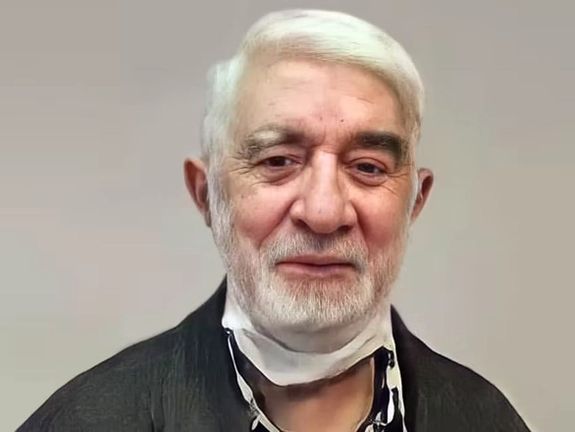
Seven political prisoners in Iran issued a statement supporting the proposal by opposition figure Mir-Hossein Mousavi for constitutional change through a referendum.

Seven political prisoners in Iran issued a statement supporting the proposal by opposition figure Mir-Hossein Mousavi for constitutional change through a referendum.
They announced that "they will do their best to advance this proposal and a peaceful and non-violent transition to a completely democratic and developed Iranian structure."
Leading reformist politician, Mostafa Tajzadeh and the daughter of Iran former president Akbar Hashemi Rafsanjani, Faezeh Hashemi, who are behind bars, are among the signatories.
“The only way out of the impasse for the government is to surrender to the right of the people to determine their own destiny,” reads he statement.
In a statement on Saturday, Mousavi, a presidential candidate in 2009, who has been under house arrest since 2011, said Iran needs “fundamental change” based on “Woman, Life, Freedom” and a referendum on the constitution.
Referring to government violence against protesters, he said the rulers of the Islamic Republic are not willing “to take the smallest step to meet the demands of the people.”
Mousavi in his statement implicitly repeated what exiled Prince Reza Pahlavi has been saying for years, and other opposition activists have echoed in the past five months – transition from the Islamic Republic.
Iranians have been hotly debating the need to form an opposition council to manage the protest movement and plan for transition to a new form of government. So far, there are no signs that prominent activists abroad are about to untie.
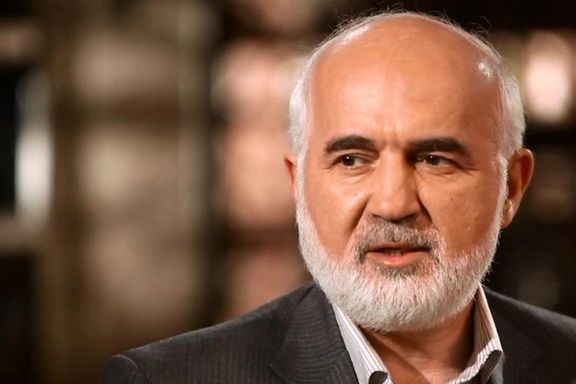
Iranian hardliner politician Ahmad Tavakkoli has rebuked the government for its plan to liquidate public assets with no supervision or a clear process.
In a letter addressed to the heads of the three government branches published Sunday, Tavakkoli, who is a member of the Expediency Discernment Council, said that the measure is in obvious violation of the country’s constitution.
He argued that this manner of running the government is similar to the behavior of a drug addict who cannot afford to buy his drugs and decides to sell off its belongings to support his addiction.
"At the beginning of the addiction, the addict spends his income on buying drugs, but after the income is not enough, he starts selling his properties and furniture," Tavakkoli said.
Tavakkoli, himself considered a regime insider, criticized the plan despite Supreme Leader Ali Khamenei’s full-fledged support for the scheme.
The Islamic Republic has recently embarked on a journey to raise capital by selling public properties, a move that has people, experts and politicians concerned about possible corruption. Similar past schemes implemented without proper rules and transparency have ended in scandals.
It involves the liquidation of billions of dollars of assets belonging to the government and its affiliated entities including banks under the supervision of a seven-man team with extraordinary powers and immunity from prosecution.
Khamenei has approved the plan, which is not a real privatization scheme. Well-connected and powerful buyers who are often secretive funds and endowments run by powerful officials are lined up to gobble up the prize.
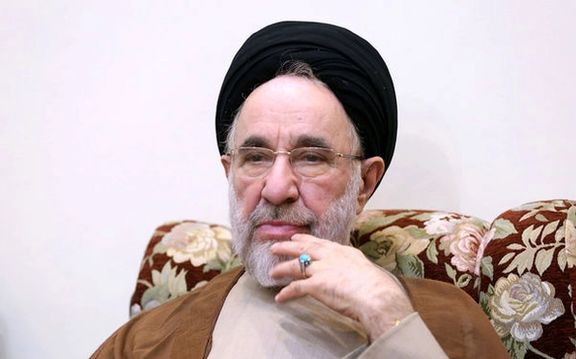
Iran’s former reformist President Mohammad Khatami on Sunday called on the government to meet the people's demands and prevent a revolutionary change.
Khatami issued a long statement, as a few other reformists also issued their statements just days before the 44th anniversary of the Islamic Republic on February 11.
During the past days several reformist, moderate and conservative politicians in Iran, including former president Hassan Rouhani, Expediency Council member Mohammad-Reza Bahonar, former deputy Interior Minister Mostafa Tajzadeh and former Prime Minister Mir Hossein Mousavi pointed out that the government needs to surrender to demands for reforms to save the country from havoc.
However, every one of these political figures put forth his own solution which mainly revolved around amending the Constitution or ensuring its full implementation.
It was only Mousavi who called for a brand-new Constitution based on a referendum and end to ‘reformism’ as a strategy for change, but he stopped short of saying how the current political establishment should be removed first.

Khatami who has never officially acknowledged his role as the leader of the ‘reformists’ accepted that "reforms have reached a deadlock." However, he still argued that another attempt to bring about change should pursue the path of reforms, without saying how the establishment would allow free elections or free speech.
Those opponents who demand a regime change have long argued that the Islamic Republic is not “reformable”, but politicians like Khatami who have remained loyal to the concept of an Islamic republic have never accepted that their 25-year efforts to bring about meaningful change have failed.
Jamshid Barzegar, a political analyst in Europe and a contributor to Iran International TV reacted in a series of tweets to Khatami’s statement, arguing that it is an attempt to help the regime rather than a serious plan for change. He contrasted the former president’s words with those of Mousavi and said that the latter has really parted ways with ‘reformism.’
The former president also warned that Iran is facing an all-out crisis which has its roots within the country. He further called for changes in the current constitution of the Islamic Republic to cope with the shortcomings that are visible everywhere.
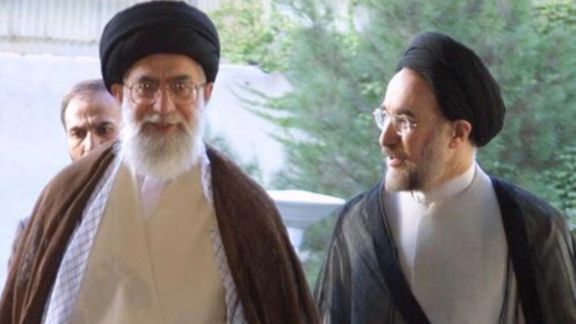
Others have pointed out that amending the constitution is not a solution if clerical rule is not abolished and complete freedoms are not granted.
Khatami also insisted that the general feeling in society is that the situation is bad, and Iran's enemies are taking advantage. At the same time, the government has been restricting civil liberties, he said. The result is a wide gap between the people and the government.
For the young protesters in Iran, using terms such as “enemies” would sound like repeating Khamenei’s slogans. They want to replace the Islamic Republic with a secular and democratic system, and do not believe that the United States, Europe or even Israel is an enemy.
Khatami warned that the collapse of the Islamic Republic will lead to chaos, civil war and bloodshed, an argument often used by the regime.
As his way out of the crisis he suggested strengthening national solidarity by giving a chance to all ideas, ethnic groups and religions to take part in the political dynamics through holding free and fair elections.
Khatami's third suggestion was declaring a general amnesty for all prisoners. Correcting the judicial process in Iran was his fourth suggestion. Freedom of news dissemination and supporting independent media and campaigning against all forms of corruption in the system were his fifth and sixth suggestions.
Khatami's next two suggestions were about leadership. He called for the accountability of all officials without mentioning Khamenei.
Preventing the military from intervening in political and economic affairs, changing the foreign policy, and putting an end to security organizations’ control over hiring and firing government employees were the other solutions Khatami suggested as a way out of the current crisis in Iran.
However, he did not propose a strategy or tactics to achieve these goals. It remains unclear if he would support protests or civil disobedience to force the government to relent. Short of that, many have expressed nice wishes for change, but Khamenei and his supporters have persisted in their ways of governance.
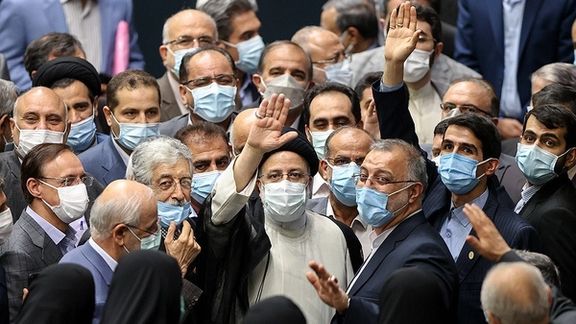
Amid a legitimacy crisis for Iran’s regime there are signs that reformist figures are being allowed to speak out possibly as a safety valve to save the system.
As parliamentary elections next year are on the horizon, the regime will have a hard time to have any sort of vote resembling at least a limited choice, unless it allows some reformists to run for seats.
Some conservatives acknowledge the need for essential reforms in the country's political system, and the core of the regime under Supreme Leader Ali Khamenei might consider ending the isolation it has imposed on reformists.
Influential conservative politician and a member of the Expediency Council Mohammad Reza Bahonar is one of the conservatives who has pointed out the need for reforms. Bahonar said in a recent interview: "We need a second Republic," meaning that a Constitutional Assembly should be formed to determine new boundaries for the government's authority and the people's rights.
There are indications that the regime might tolerate reform-minded candidates in the upcoming elections. Members of the press have pointed out more frequent public appearances by former President Hassan Rouhani. He recently met with a like-minded press corps of moderate and reformist journalists and media owners. Meanwhile, he has been speaking out about political issues.

In one of his latest political remarks, Rouhani said that "a minority government cannot solve the country's problems." His characterization of Raisi's all conservative administration and the ultraconservative parliament as a "minority government" was reminiscent of his well-known art of tact and dry sense of humor.
There are other reform-minded contestants too for the next election. They are politicians such as Mostafa Tajzadeh who is in jail, and former Prime Minister Mir-Hossein Mousavi who has been under house arrest since 2011. However, if Khamenei is going to allow reform-minded politicians to run for key positions, he is highly unlikely to settle for anyone known to be more of a reformist than moderate conservative Hassan Rouhani.
On Saturday, February 4, Tajzadeh issued a long statement calling for constitutional reforms, i.e, preserving and beautifying the Islamic Republic.
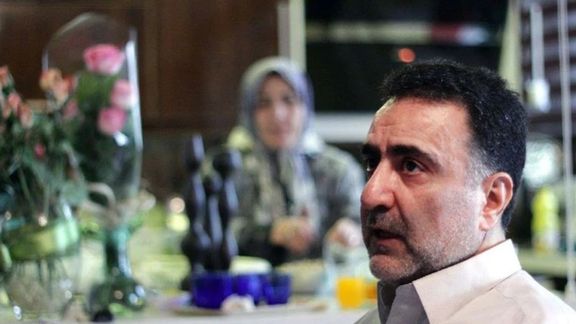
On the same day, Mousavi also introduced his version of a call for constitutional change, which could be summarized as holding a free and fair referendum on changing the constitution or writing a new one, if necessary, forming a constitutional assembly, holding another referendum on the assembly's ratification, establishing a political order based on rule of law and the people's will. Mousavi’s call was clearly more radical, as he declared that the regime cannot be reformed.
These developments coincide with some conservatives also emphasizing the need for reform moves to boost the regime’s legitimacy.
Conservative politician Bahonar, asking for reforms said that protests have not really ended, and warned that after the protests recede, the regime should not forget about the people's grievances and demands, although “we tend to forget about their complaints as soon as the situation calms down."
He said, as the country gets closer to a parliamentary and an Assembly of Experts election next year, “we need to remember that an election without the presence of our rivals would be meaningless.”
He called the recent protest "a hybrid war against the Islamic Republic" waged by Europe, the United States and international media and political forums. He also acknowledged the role of Iranian expats and celebrities in the protests. Nevertheless, he ignored hundreds of thousands of Iranians who took to the streets for over five months.
Bahonar said that foreigners were prompted by recent low-turnout elections to believe that the Islamic Republic has lost its “social capital.” He added that even those who take part in pro-regime demonstrations have many complaints about the performance of the President and other state officials. He further suggested that dialogue should be maintained between the people and the government and elections should be competitive.
He also pointed out that conservatives' political rivals should not be barred from elections as it was the case in parliamentary and presidential elections in 2020 and 2021. He also criticized the regime for weakening political parties over the years.

Iran’s most prominent Sunni leader Mawlana Abdolhamid has criticized the government for not allowing criticism, while officials are planning more hijab enforcement.
In his Friday Prayer sermon in Zahedan, Abdolhamid called for freedom of speech and suggested that the Islamic Republic government should begin to include qualified secular individuals in its institutions.
The Sunni leader has become an outspoken critic of the Islamic Republic since nationwide protests broke out last September, and specially after security forces killed more than 80 civilians in the city on September 30.
Criticizing brutality in Iranian prisons, Abdolhamid said that inmates should not feel that they have been imprisoned by the enemy. "All Muslims and followers of other faiths should be treated fairly and equally in prisons. Wardens should not insult or attack the inmates," Abdolhamid stressed.
The call for fair treatment of inmates was made while photos of a political prisoner, Farhad Meysami has gone viral on social media and even found their way to more controlled traditional media. Meysami who has been in jail for five nearly years for doing nothing other than opposing the death sentence, supporting women who removed their scarves in public in 2018, and calling for the release of other political prisoners, is seen in these pictures with his ribs and bones alarmingly visible under his skin with almost no fat and flesh.
Abdolhamid also called for press freedom in Iran and said that journalists should be free to speak about the realities and highlight weaknesses. Meanwhile, he warned government officials that "there is no value in ruling over people who do not want you." In another part of his sermon, Abdolhamid called on the government to release Sunni leaders Mawlana Abdolmajid, Mawlana Gorgij and the Mamustas (Sunni clerics in Kurdistan) from jail. He said these men of God wish well for the society. So, they should not be intimidated or threatened.
The Sunni leader’s critical comments came one day after Shiite cleric Mousa Ghazanfarabadi, the head of the Iranian parliament's Judiciary Committee called for harsher treatment of those who undermine the compulsory hijab rule.
Ghazanfarabadi suggested that those women who undermine compulsory hijab should first receive a text message on their phone and then they should be fined in case they continue to ignore the hijab, and they will be deprived of all social services until they pay the fine.
He also suggested that bad-hijab women should be identified using face detection technology in the streets. Once they are identified, their ID cards will be confiscated, and they will be deprived of social services including using the banking system. He said the parliament is adamant to implement this plan once it is finalized and becomes a law.
However, he insisted that the new system of dealing with bad-hijab women does not include any physical confrontation.
The protests began when Mahsa Amini, a 22-year-old woman was fatally wounded in the custody of the ‘hijab police’ in September. During widespread street protests officials were careful not to speak about enforcing the veiling rule, but now they feel they have crushed the movement.
All this is happening against a backdrop of general dissatisfaction about the deteriorating economic situation. In one of the latest cases of unhappiness about the government's performance, Deputy Commander of the Iranian Army, Habibollah Sayyari said that the budget allocated to the army for the coming year is not enough to confront the many threats Iran is facing in the region.
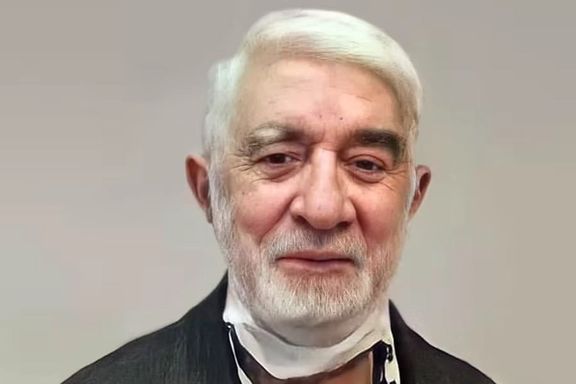
A prominent opposition figure says Iran needs a “fundamental change” based on “Woman, Life, Freedom” and constitutional change, in a statement released on Saturday.
Mir-Hossein Mousavi, who was a presidential candidate in 2009 and has been under house arrest since 2011, referring to government violence against protesters, said that such events have “demonstrated major truths for the nation.” The rulers of the Islamic Republic are not willing “to take the smallest step to meet the demands of the people.”
But what was noteworthy in Mousavi’s message, dubbed “To save Iran,” is his conclusion that the people have given up hope for reforms.
The leader of the Green Movement, born from large popular protests in 2009, is known as a staunch reformist, or someone who believes the Islamic Republic can be reformed to become a more democratic and tolerant polity.
But Mousavi’s statement seems to reject reform as a viable alternative, urging fundamental change, a new constitution and a constitutional assembly.
Although he does not openly call for regime change, but his demands, if implemented could lead to a new and democratic political system.
Mousavi in his statement has implicitly repeated what exiled Prince Reza Pahlavi has been saying for years, and other opposition activists have echoed in the past five months – transition from the Islamic Republic.
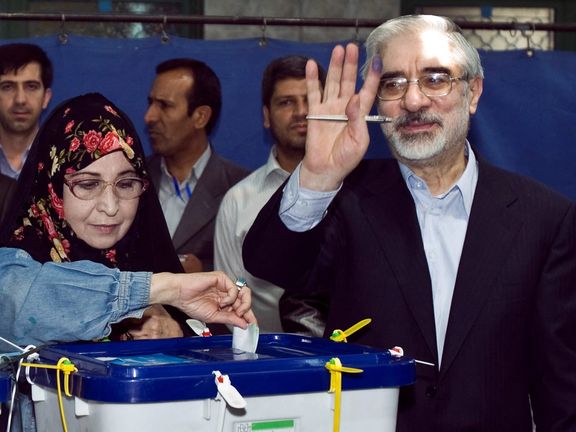
“Iran and the Iranians need a fundamental change, that takes its main features from the pure movement of ‘Woman, Life, Freedom.’ Mousavi said. These three words are “the seeds of a bright future, free of oppression, poverty, humiliation and discrimination.”
This represents an important turning point when an opposition figure from inside Iran demands a new constitution, implicitly rejecting the current leadership altogether.
However, Mousavi carries a heavy political baggage that has dented his popularity. When protests began in 2009 against the highly suspicious victory of Mahmoud Ahmadinejad in presidential elections that year, millions of Iranians poured into streets. They saw Mousavi who was the opposing candidate, as their leader, but he refrained from criticizing Supreme Leader Ali Khamenei who was ultimately responsible for engineering the vote count and the subsequent suppression of protesters. Mousavi came across as someone who did not want to challenge the Islamic Republic.
He also served as prime minister in the 1980s, when the government killed thousands of people in prisons. His critics say that Mousavi has not apologized or explained why he remained silent at the time.
Nevertheless, Mousavi puts forth three demands in his statement. First, a free and untainted referendum about the necessity to change or write a new constitution. Second, in case of a positive vote by the people, to form a constitutional assembly composed of the “real representatives of the nation” through a free and fair election. Third, a second referendum to approve the draft constitution to establish a regime based on rule of law, in conformity with human rights and the will of the people.
Mousavi acknowledged that his three demands require further clarifications, as for example who would implement the changes needed, but he appealed to sense of unity and cooperation “to save Iran”.
Iranians have been hotly debating the need to form an opposition council to manage the protest movement and plan for transition to a new form of government. So far, there are no signs that prominent activists abroad are about to untie and establish a framework of coordination. Inside the country no such move is possible because of repression, but many people seem willing to support a council formed abroad.